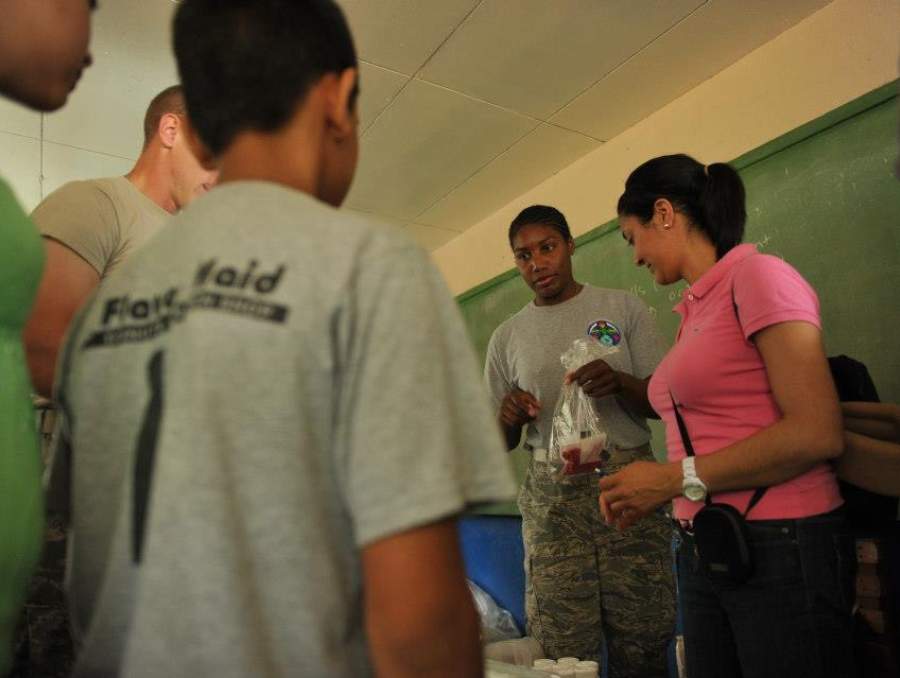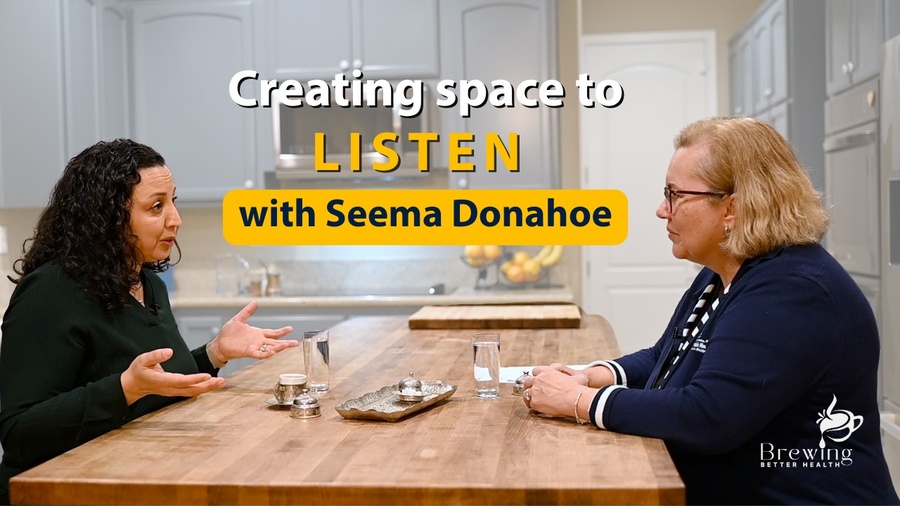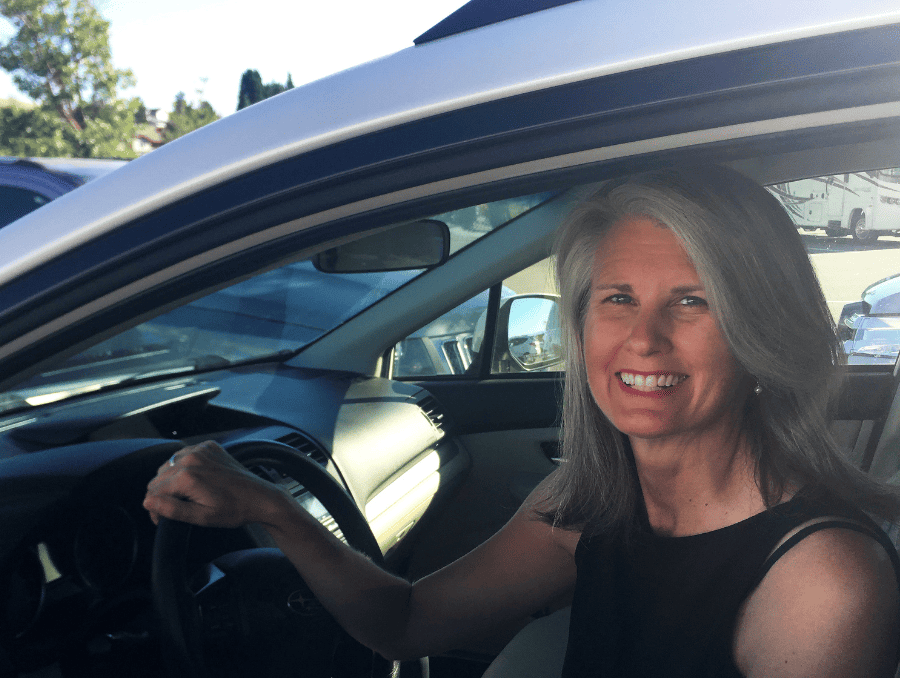On Veterans Day, we pause to honor the courage, sacrifice and enduring commitment of those who have served in the United States Armed Forces. For many veterans, service is more than duty. It is a calling shaped by family, history and a desire to help others. In public health, veterans bring unique perspectives shaped by global experiences, cultural awareness and a deep commitment to improving lives.
Jim Bellamy, Ph.D., MPH, CNMT, undergraduate program director at the University of Nevada, Reno School of Public Health, grew up immersed in military life. His father served in both the Army and Air Force, and his mother, a World War II survivor, lost her parents and siblings in a single day. Those profound family experiences instilled in him empathy and a lifelong commitment to service.
“I knew growing up I wanted to help people,” Bellamy said. “My military experience as hospital corpsman showed me how fortunate I was and how many people were not. I always thought about how much we were missing when so many people did not have the chance to reach their full potential. I grew up thinking about what my aunts and uncles could have accomplished. Are we missing the next Albert Einstein or Martin Luther King? This came from my parents.”
“Veterans Day is a testament to the men and women who served this country and others in need,” Bellamy said. “Public health, at its core, is about service. Both the military and public health are about helping people. It’s about making sure no one is left behind.”
For Bellamy, serving in the military opened his eyes to global disparities and inspired his path into public health. Exposure to diverse cultures taught him the importance of cultural humility, a cornerstone of effective public health practice. “We can learn a lot from each other,” he said. “Public health is a great field. You get to help so many people.”
Dominique Elias, '25, a U.S. Army veteran and former medic, echoes that sentiment. Her seven years of active duty took her from Kansas to South Korea and Germany. “I gained invaluable friendships, mentorship and a deeper understanding of different cultures,” she said. “I pushed myself to limits I didn’t know I was capable of physically, mentally and professionally. Most importantly, I was able to provide care to fellow service members and foreign national troops.”
Elias said her experiences as a medic were her first lessons in public health, though she didn’t recognize it at the time. In the field, she managed sanitation systems, ensured water and food safety, and taught soldiers about heat safety and hygiene. “A lot of times it felt like I was wearing 20 different hats at once,” she said. “But at the end of the day, it was always mission first.”
Her time in the military also gave her an intimate understanding of mental health struggles among service members. “I watched friends battle mental health challenges and tried to support them, but resources were rarely accepted,” she said. “A lot of veterans will agree that talking about your feelings wasn’t what you did. We would joke that we’d never be as cool as we were in our twenties, but other times we’d sit in silence with the weight of those experiences.”
Elias, now an alumna of the School of Public Health, works in its Department of Epidemiology, Biostatistics and Environmental Health while pursuing a graduate certificate in donor management and transplantation science. She said her continued work in public health is deeply shaped by her military experience and her belief in supporting fellow veterans.

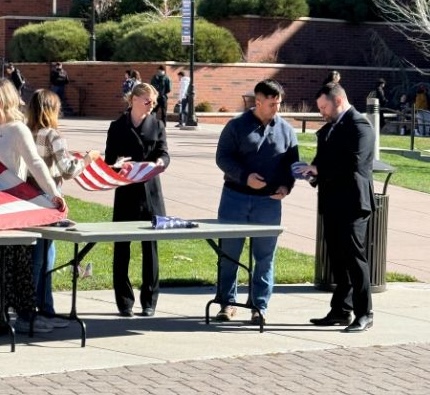
She credits much of her continued purpose to mentors and peers who have shared their own stories of transition, including Rick Anderson, a fellow veteran and current social work student at the University. Anderson’s openness about his recovery and journey to help others reminded Elias how important vulnerability and honesty are to healing. “Rick’s story hit me hard,” she said. “It showed me that asking for help isn’t weakness, it’s strength. His willingness to use his experiences to guide other veterans really inspired me to think about how I could do the same through public health.”
Melanie K. Muldrow, DVM, MPH, and currently a Ph.D. student in epidemiology, joined the Air Force after earning her master’s degree in public health. “There was a physician in my MPH class who was an Air Force officer, as well as an Army Reserve officer,” Muldrow said. “They both talked to me about the military, and that gave me some insight into what it’s like to be part of it. When an Air Force recruiter spoke to our cohort about commissioning as a public health officer, I realized it was a perfect opportunity. It offered good pay and benefits, hands-on experience and the chance to serve while building a public health career.”
Fifteen years later, Lieutenant Colonel Muldrow remains in the Air Force, having found purpose in supporting deployment and occupational health programs. Her work focuses on protecting service members through force health protection, emergency management and global health readiness.
“My military experience has greatly influenced my interest in public health, especially international health, infectious disease and emergency management,” Muldrow said. “A large part of my job is managing deployment health for service members and understanding exposure and disease risks. I’m also passionate about emergency management because it allows me to collaborate across disciplines and borders.”
She recalled a pivotal experience during a global health mission to Central America, where she helped deliver medical care and public health education to communities without access to healthcare. That mission inspired her to become an International Health Specialist. “The Air Force gave me experiences that I would not have had otherwise,” she said. “I’ve seen firsthand how important public health is to both national security and global well-being.”
For Muldrow, Veterans Day is a time to reflect on service in all its forms. “It’s a time to recognize not only personal and collective acts of military service but also the challenges faced by those who served,” she said. “Military experiences shape how we understand and practice public health. I encourage everyone in public health to look beyond statistics to the real impact their work can have on veterans’ lives.”
She believes veterans bring exceptional skills to public health, from crisis management to teamwork and resilience. “Veterans have a unique opportunity to understand and develop research specific to the needs of the military population,” she said. “Leverage that perspective, seek mentorship and network. Public health is complementary to so many disciplines you can’t go wrong.”
Veterans face complex health challenges. According to the U.S. Department of Veterans Affairs, suicide rates among veterans remain 57 percent higher than nonveteran adults. In Nevada, the rate is 59.4 per 100,000, compared with 19.5 for nonveterans, according to the Nevada Department of Veterans Services. These numbers underscore the importance of continued advocacy, research and support in the field.
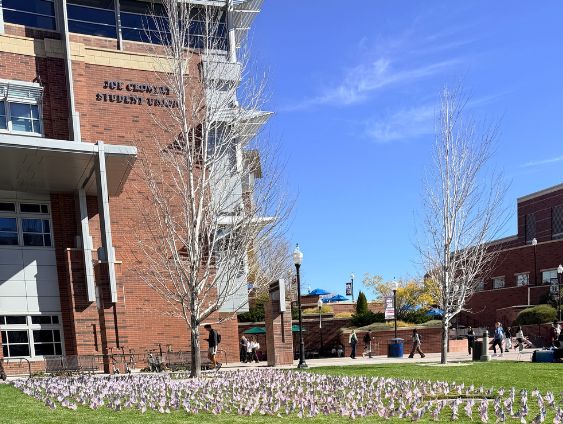
For Bellamy, Elias and Muldrow, the call to serve never truly ends. Whether in uniform or in a classroom, their shared mission remains the same: to protect and improve the health of others.
“Veterans Day is a testament to the men and women who served this country and others in need,” Bellamy said. “Public health, at its core, is about service. Both the military and public health are about helping people. It’s about making sure no one is left behind.”
